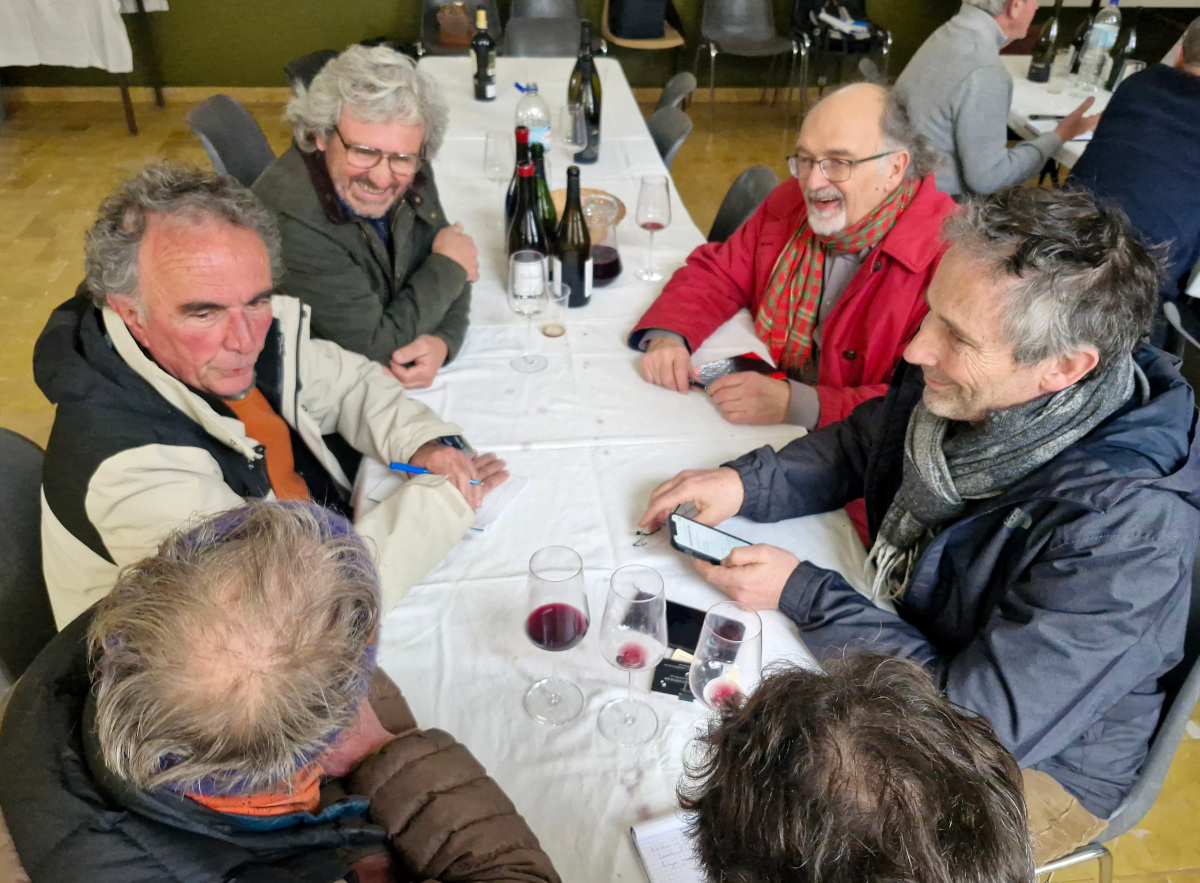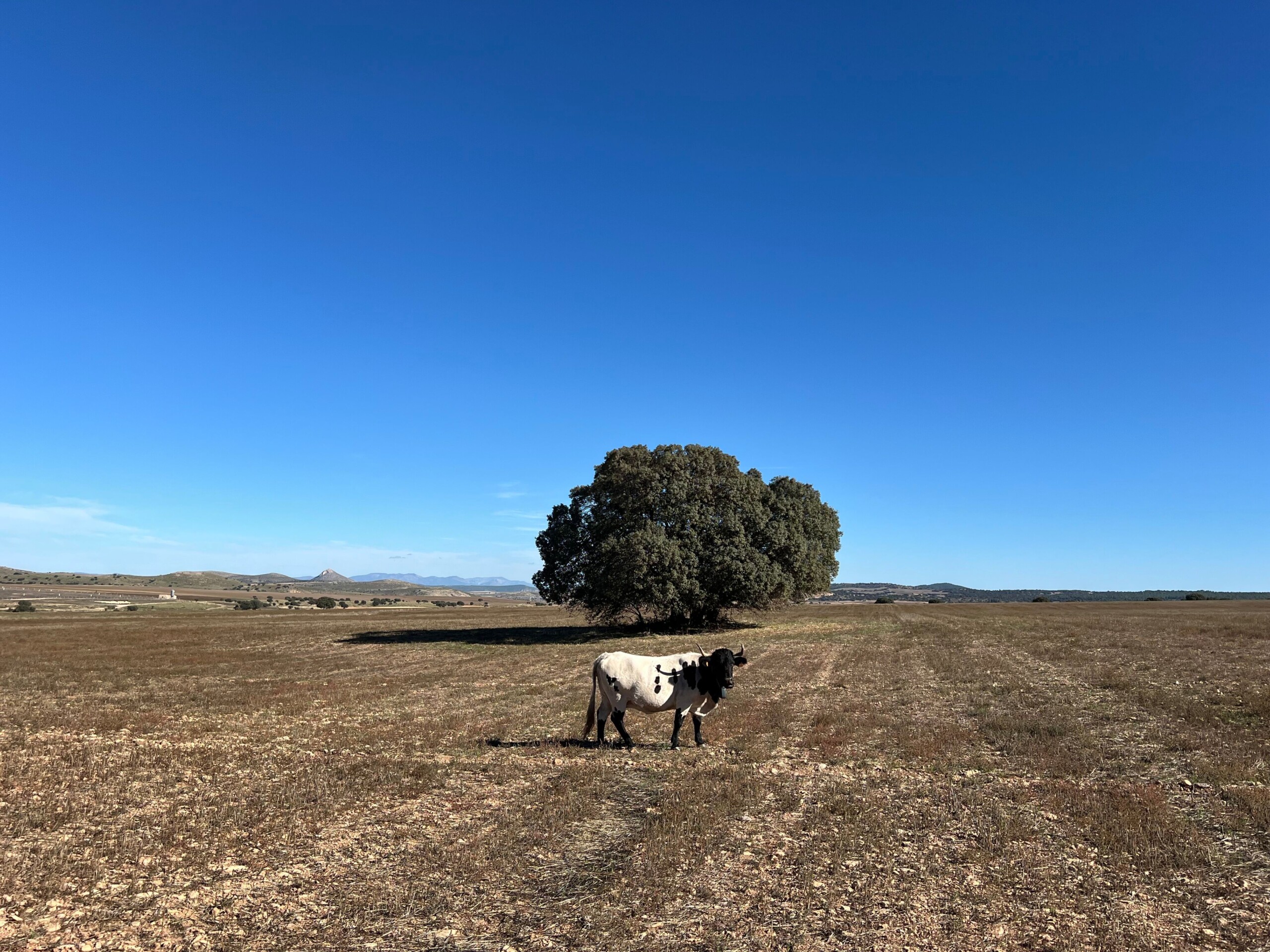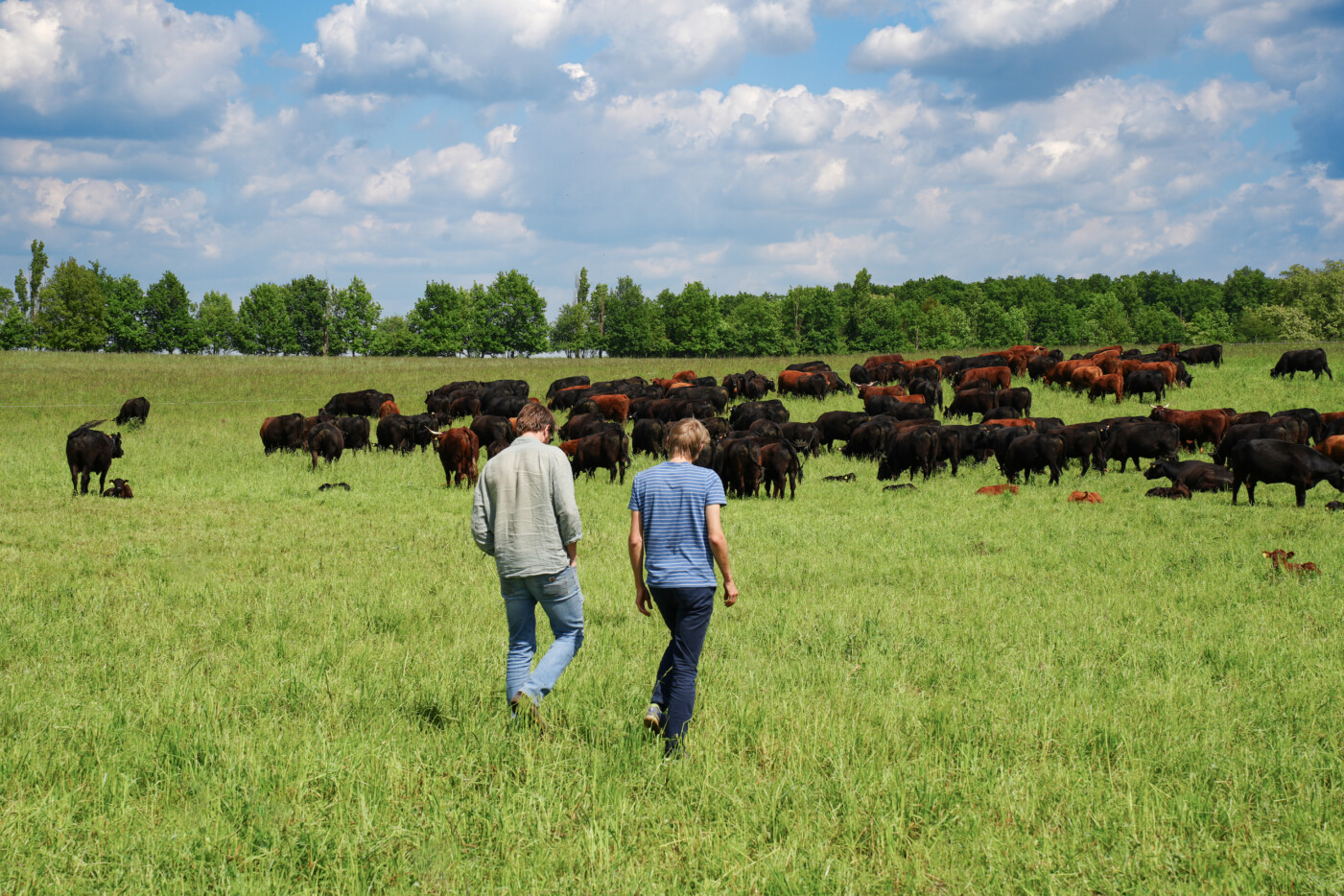
Photo: Benedikt Bösel and Koen van Seijen, at Gut & Bösel Farm, Alt Madlitz, Brandenburg, Germany by Finck Stiftung
24 June 2025
“What I realized quite early [on] was that if we wanna […] create business models that allow my kids or my sister’s kids to take over the farm at some point—and have fun doing it—I need drastic changes. […] The learning curve is just, it’s just probably one of the most beautiful things about the whole thing. Specifically with the cows.” — Benedikt Bösel
The second episode of our podcast series, The role of animals in the food and agriculture system of the future, co-produced with Investing in Regenerative Agriculture and Food, continues our exploration of the benefits of regenerative animal integration. We visit the fields of Brandenburg, Germany, where farmer and innovator Benedikt Bösel is reimagining what’s possible on a 3,000-hectare estate. Joined by host Koen van Seijen, Benedikt shares his journey from investment banking to regenerative farming, and why bringing animals back onto the land has been the catalyst for ecological, economic, and social renewal.
From Industrial Arable to Regenerative Integration
When Benedikt took over his family farm in 2016, it was a large-scale, organic but highly specialized arable operation: a system focused on crops and forestry without animals. Facing financial and environmental pressures, he realized that incremental change wouldn’t be enough. He explains that to create a future for the next generation, he needed to close nutrient cycles, build resilience, and diversify risk—and animals are essential for that.
Benedikt’s approach centers on integrating a growing herd of Salers and Angus cattle directly into the crop rotation—not as a separate enterprise, but as a core part of the farm’s ecology and economy. The cattle graze on diverse herbal leys in summer and move onto arable fields with cover crops in winter, mimicking natural patterns and supporting soil health, water retention, and biodiversity.
Learning with the herd: complexity, feedback, and connection
Managing animals at scale brings complexity and a steep learning curve, but also unique rewards. Benedikt describes the daily feedback from the herd as a sort of mirror; their health, behavior, and productivity reflect the quality of management and the state of the land. Building trust and connection with the animals, especially during calving and handling, has reshaped not just farm practices but the culture of the team.
Beyond fertilizer: animals as risk management and value storage
For Benedikt, the benefits of animal integration go far beyond manure. The cattle provide resilience in the face of drought and market volatility, offering both a source of fertility and a store of value that can help the farm weather tough seasons. He notes that if he needs to make payroll in a difficult month, the herd gives him options, and that flexibility is key for long-term viability.
Rethinking meat: humane harvest and honest conversations
The episode also addresses the complexities of producing meat in a regenerative system. Benedikt is committed to on-farm slaughter, minimizing stress and honoring the animals’ lives—a practice that has sparked both curiosity and debate among visitors and consumers. He welcomes open conversations, emphasizing that “life is never black and white,” and that well-managed animals are allies in restoring landscapes and food systems.
Scaling regeneration: challenges and opportunities
Benedikt is candid about the challenges: integrating animals requires new skills, infrastructure, and a willingness to embrace complexity. It’s not a one-size-fits-all solution, and it won’t be right for every farm. But as Gut & Bösel expands its agroforestry systems and deepens partnerships with researchers and the local community, the farm is becoming a living laboratory for what’s possible when animals, crops, trees, and people work together.
Why this matters
Benedikt’s story highlights the transformative potential of animal integration—not just for soil and ecosystem health, but for farm resilience, business models, and rural communities. His experience echoes the core themes of this podcast series: that animals, thoughtfully managed, are not a problem to be solved but a solution to be embraced.
Listen with us
We invite you to listen to the full conversation with Benedikt Bösel and Koen van Seijen for practical insights, honest reflections, and inspiration for the future of farming. More episodes in this series will follow through 2025 and 2026. Stay tuned on the DMSF website and follow Investing in Regenerative Agriculture and Food for the latest updates.
—
This podcast series is co-created and supported by the Datamars Sustainability Foundation. Discover more about our ongoing projects and join the conversation about building regenerative food systems for the future.
